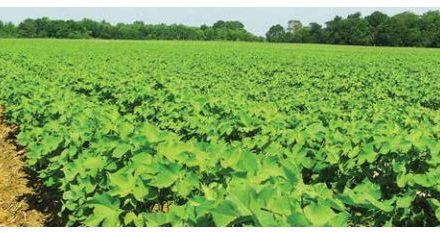
Government Encourages Wheat Production as a Viable Cash Crop.

Government says wheat production has huge potential for boosting the export base and significantly increasing Malawi’s economic growth.
In January this year, Agriculture Technology Clearing (ATC) of the Ministry of Agriculture approved the release of four varieties of wheat namely: CIM1152, CIM1227, CIM2026, and CIM2036 after on-farm testing trials in the country, as per the recently released report by agriculture experts.
Speaking during the official launch of this year’s Affordable Inputs Program (AIP) on 20th October 2023 in Kasungu district, President Lazarus Chakwera disclosed that his administration has already secured markets for wheat, adding that government has gone further engaging several heads of state across the world on the supply of Malawi wheat to their respective countries and that discussions are at an advanced stage.
The Malawi leader emphasized the potential of wheat as a profitable cash crop. In addition to expanding Malawi’s export opportunities, increased wheat production will significantly cut the country’s wheat imports by fifty percent.
President Chakwera adds that the selected four wheat varieties, certified by agriculture experts, are heat-tolerant and can be grown in all climatic conditions in Malawi.
“Currently, demand for wheat across the world is very high. My administration is about to sign a deal with a certain president in Africa to supply wheat, and I will soon update the nation on the process,” said the Malawi leader.
On the Affordable Inputs Program, Chakwera said his administration will incorporate farmers from districts that are not suitable for food production into the social cash transfer program to help them buy their needs.
Speaking earlier in an exclusive interview, Minister of Agriculture Sam Kawale indicated that over 100 billion Kwacha has been allocated for the implementation of this year’s AIP and that 1.5 million households will benefit from the program.
Kawale further stressed that one million farmers that have been left out of the AIP will be incorporated under other national programs such as the cash transfer program and the climate smart public works program.
Meanwhile, agriculture expert Ronald Chilumpha has faulted government for its commitment towards the implementation of AIP, saying the program is no longer impactful on subsistence farmers.
“Year in and year out, our farmers are still food insecure. AIP is not bearing anticipated results,” he said.
Chilumpha reasoned that the government, among others, should prioritise subsidising value chain products such as cotton and coffee and also lowering prices of irrigation equipment to facilitate small and medium farmers to have double harvests.
But President Lazarus Chakwera challenged critics that his administration will not abandon AIP, saying both AIP and mega farms will be implemented concurrently and not as substitute of the other.
“Those who are saying my administration must abandon AIP have one thing in common: they are able to buy things on their own. People must understand that AIP is not meant for everyone. AIP is focusing on smallholder farmers with two to four hectares of land, while Agriculture Commercialization (AGCOM) is focusing on middle-class farmers, including cooperatives,” explained Chakwera.
































